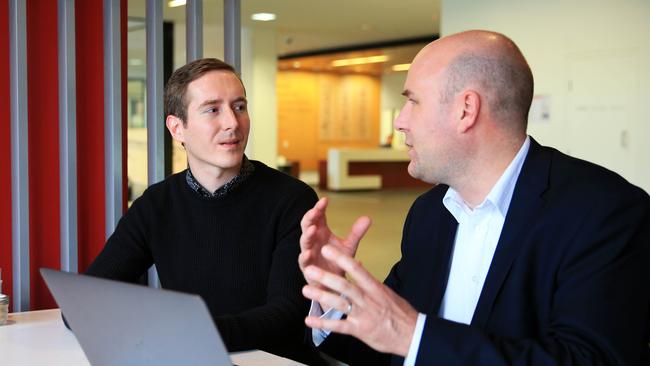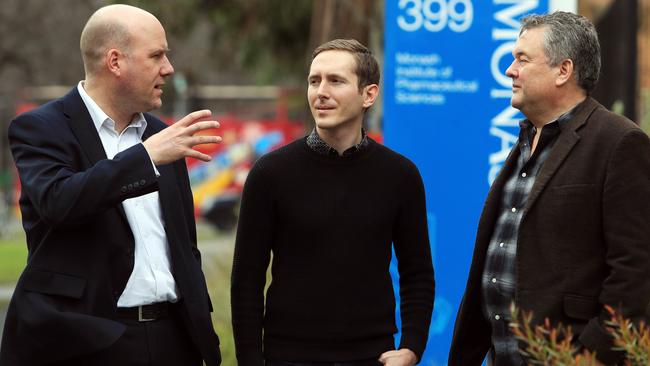Science students benefit greatly from mentorship regime
Mentorship of young researchers is one of the least rewarded activities in the lab, but that’s changing.

One of the first pieces of advice Lars Esser’s mentor gave him was to work on his profile. So he organised a public viewing of the vaccination documentary Jabbed and a Q&A panel featuring Nobel laureate Peter Doherty, no less.
“He was very entertaining,” says Esser, a postdoctoral researcher at Monash University’s Institute of Pharmaceutical Sciences. “We were able to reach people from outside my small academic world.
“A few were anti-vaccination, but they were asking questions like why there weren’t double-blind placebo studies for vaccines — specific research-based questions, which was quite surprising.”
Esser takes a 40-minute trip to Monash’s Australian Centre for Blood Diseases every couple of months to meet his mentor, Christoph Hagemeyer.
It’s one of 13 matches organised so far through a pilot program at the ARC Centre of Excellence in Convergent Bio-Nano Science and Technology.
“I was lucky to meet Chris. He doesn’t judge; he just gives a lot of advice — stories about things that happened in his life, and how he dealt with them,” Esser says.

As a recent arrival from The Netherlands, Esser says a mentor helps unlock secrets about the lay of the land — local grant application systems, for example. He says a formal program matches his personality better than the traditional “hit and miss” method.
“Perhaps you have good connections, but perhaps you don’t,” he says. “It’s hard to approach someone and ask them, do you want to be my mentor?”
The program is the brainchild of the ARC bio-nano science centre’s director, Tom Davis.
He says that while mentoring schemes for early career researchers have become more common in the past decade, this one is unique in its reach. It links postdocs from five universities in four states with mentors from industry as well as academe.
The plan is to extend it to as many as 60 postdocs at the ARC centre and it has been designed for adaptation by other institutions.
“If you’re having problems with your supervisor and you’re not sure of a way out, this gives you someone very independent who can give a bit of advice,” Davis says. “It’s an extra layer to make sure things go well.”
Davis says mentorship of young researchers is one of the least rewarded activities in the lab. But that’s changing, as he can attest. He’s a finalist for the outstanding mentor award in next week’s Eureka Prizes — the second time he has been shortlisted.
“There is the satisfaction of really helping someone’s career. It gives you a bit of a break into your everyday work and a glimpse into somebody else’s. People who do it better tend to be higher performers and have much more effective research centres in general.”
German-born Hagemeyer, who heads Monash’s NanoBiotechnology Laboratory, has two proteges. A beneficiary of mentoring earlier in his career, he wanted to “give something back”.
“I really enjoy it. Lars comes well prepared. He knows what he wants to get advice on, so I don’t have to put in too much preparation. I speak from my experience — how I handled something, or how I would not handle it.
“It can develop into a really good personal relationship, especially for people who just relocated from overseas. It’s important to have connections in the scientific community, not only via projects but also via networking and career development.”


